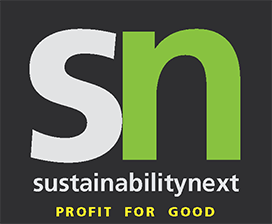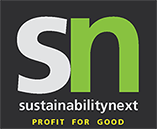The 2017 SAN Standard is now available at www.san.ag and will come into force from July 2017
The Sustainable Agriculture Network (SAN) and the Rainforest Alliance have announced a newly revised certification standard, which encompasses existing best practices and recent innovations in sustainable agriculture. Built around the guiding principles of effective farm planning and management, protection of biodiversity and natural resources, and improved livelihoods, the 2017 SAN Standard is designed to enable more producers to embark and then continually progress on their journey toward sustainable farming.
The 2017 SAN Standard aims to support farmers in advancing sustainable livelihoods, improving farm productivity, and becoming more resilient to climate change. Changes of note include the following:
- Climate-smart agricultural practices are built into the standard to help farmers address climate change risks. By emphasizing soil conservation, water-use efficiency and the conservation and restoration of natural ecosystems, farmers can reduce negative effects of extreme or erratic weather, especially irregular rainfall, changing temperatures, and related increased pest and disease attacks. These same practices also help reduce greenhouse gas emissions from agriculture.
- A key goal of the 2017 SAN Standard is to reduce forest conversion for agriculture, the leading cause of deforestation, especially in the tropics. Forest protection is mandatory for Rainforest Alliance CertifiedTM farms. The standard prohibits conversion of natural ecosystems after2014, protecting both primary and secondary forests, as well as ecosystems such as wetlands and natural grasslands. Further, no destruction of ecosystems designated as “High Conservation Value” may have taken place after November 2005.
- One important innovation in the 2017 SAN Standard is its “Continuous Improvement Framework.”This framework defines three performance levels and requires time-bound investments and improvements related to water quality, waste management, soil conservation, working conditions, living wages, and other key elements of sustainability.
- Stricter requirements related to human rights issues cover worker housing, sanitation, and safety,
as well as rigorous gender and child labor protections. The 2017 SAN Standard also includes mandatory requirements for farms to have effective ways for employees to make complaints and
file grievances. - The 2017 SAN Standard includes a substantially more rigorous framework for integrated pest management and the safe use of pesticides. The 2017 SAN Lists for Pesticide Management prohibits the use of 150 substances in alignment with the World Health Organization (WHO) and the Food & Agriculture Organization of United Nations (FAO) parameters. The document also includes 170 additional substances which are permitted only under rigorous controls that help reduce negative impacts on human health, aquatic life, and wildlife, including pollinators.
These 170 substances can be applied only under strict safety measures, such as restricting aerial fumigation in order to avoid contamination of natural ecosystems and to protect workers and bystanders, according to several conditions within the standard.
The Rainforest Alliance helped convene the Sustainable Agriculture Network in 1998. During its joint history the SAN and the Rainforest Alliance have certified more than one million small, medium, and large farms and farming cooperatives. Today about 3.5 million hectares (8.6 million acres) of farmland, growing 100 crops across 42 countries, are certified.
The 2017 SAN Standard results from an extensive revision process involving multiple stakeholders such as farmers, NGOs, companies, scientific and technical experts; a series of open public consultations; and field-testing in key regions. The new standard was developed according to the Code of Good Practice for Setting Social and Environmental Standards of the ISEAL Alliance, the global association for sustainability standards whose mission is to strengthen sustainability standards for the benefit of people and the environment.







